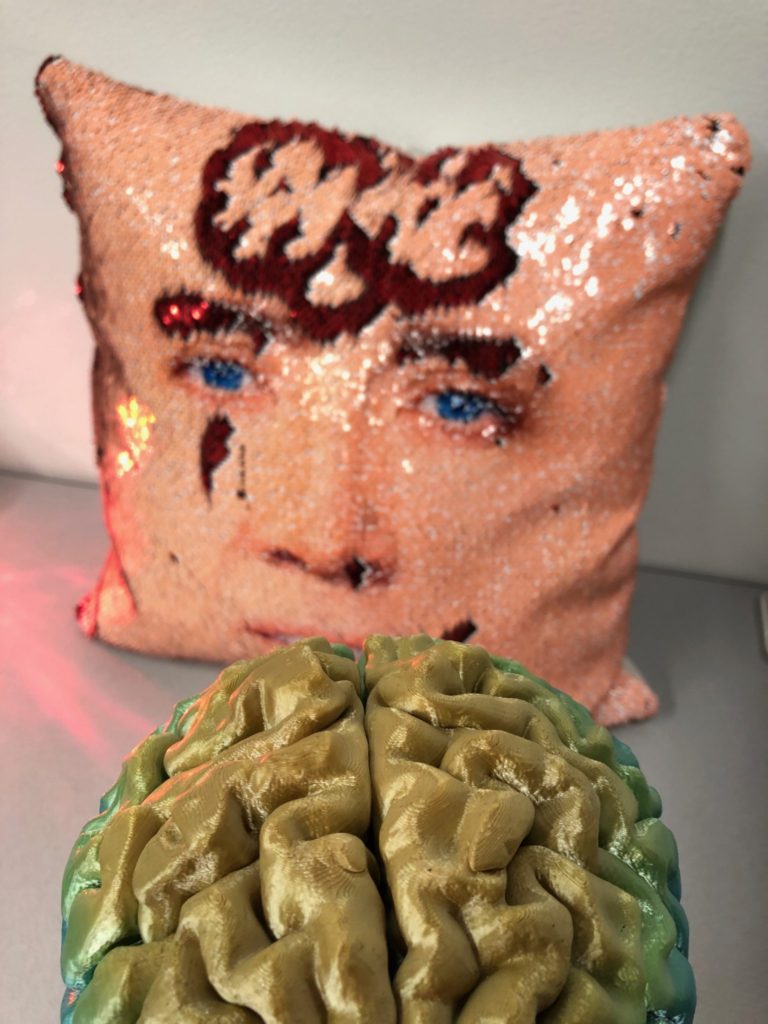Post by Angela Hendrix, NW Noggin
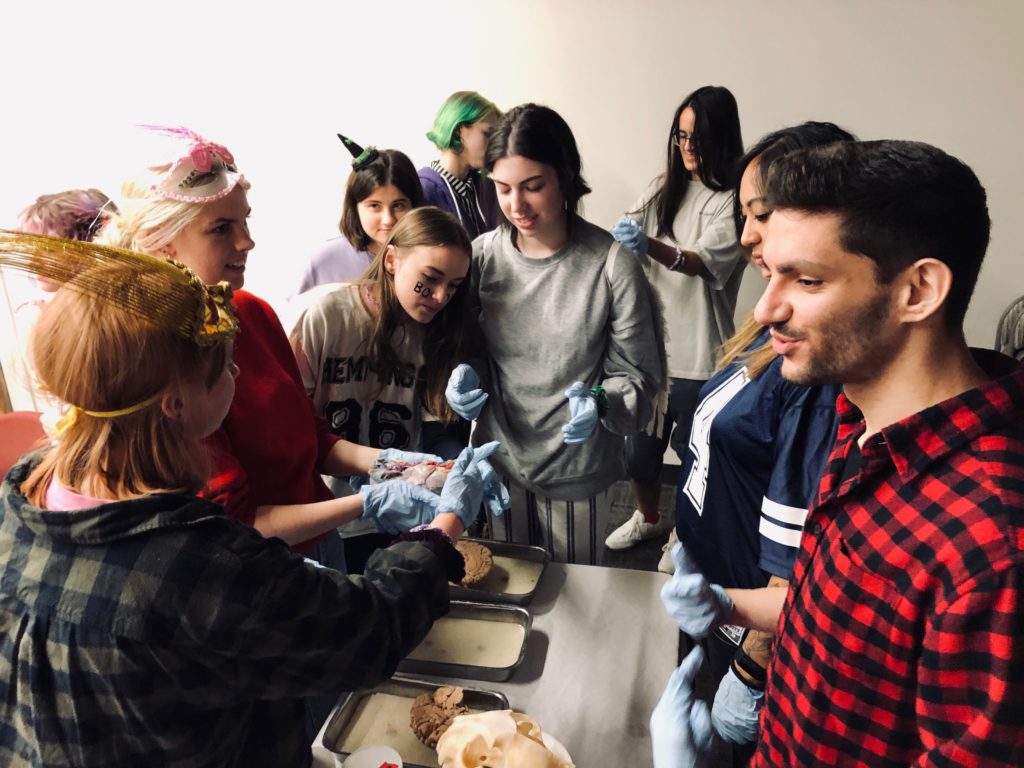

“It takes courage to grow up and become who you really are.”
— E. E. Cummings
Youthline is a free, confidential, teen-to-teen 24/7 crisis helpline. Youth who are in crisis, or who want to talk with someone about anything they need help with, can call, text, email, or chat online, with trained, supportive staff and young volunteers who can offer assistance. They claim ‘No problem is too big or too small for the YouthLine!’ Youth can text or call and talk with other teens daily from 4-10pm PST, while adults are available 24/7/365.
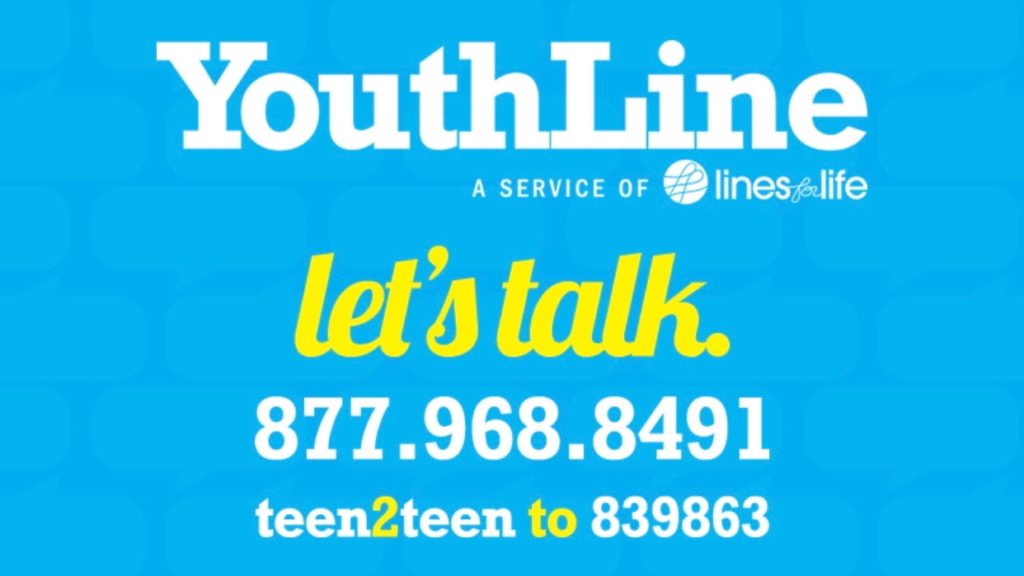
Youthline is a subsidiary of Lines for Life, a regional non profit dedicated to preventing substance abuse and suicide. The innovative peer-to-peer option is based in Oregon, but adolescent volunteers take calls – though especially texts – from young people around the country. Last month, we were told, they connected with almost 1200 youth in crisis!
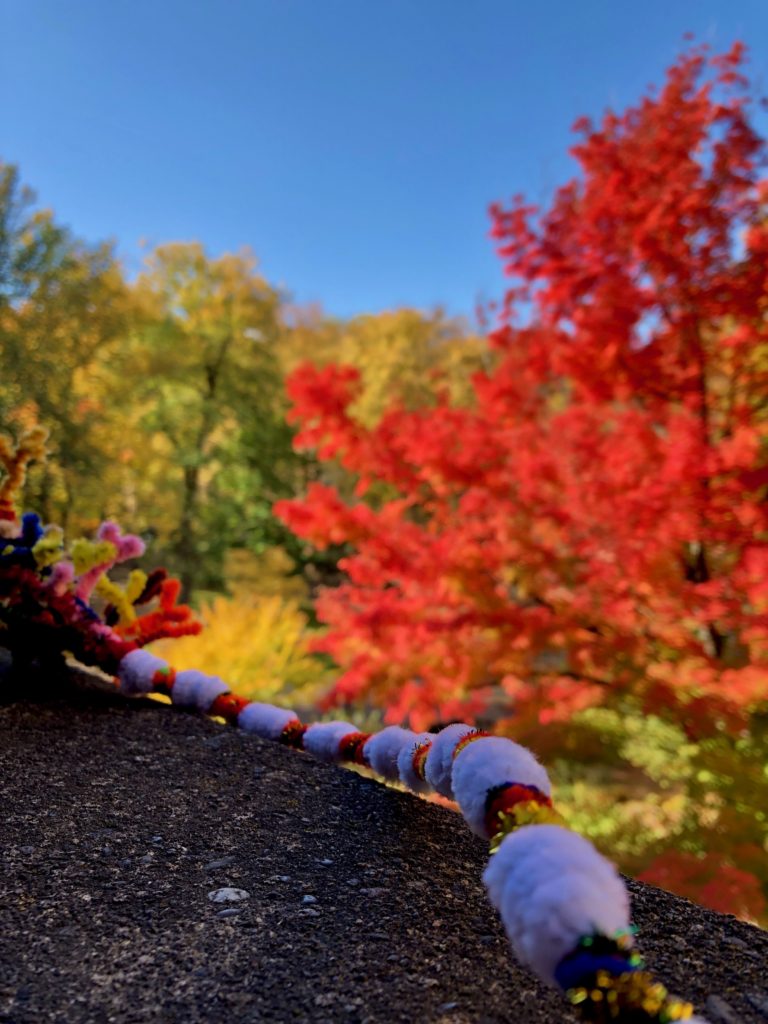
LEARN MORE: It Takes a Teenager to Help a Teenager in Crisis
Lines for Life also offers special helplines for lonely seniors and struggling veterans.
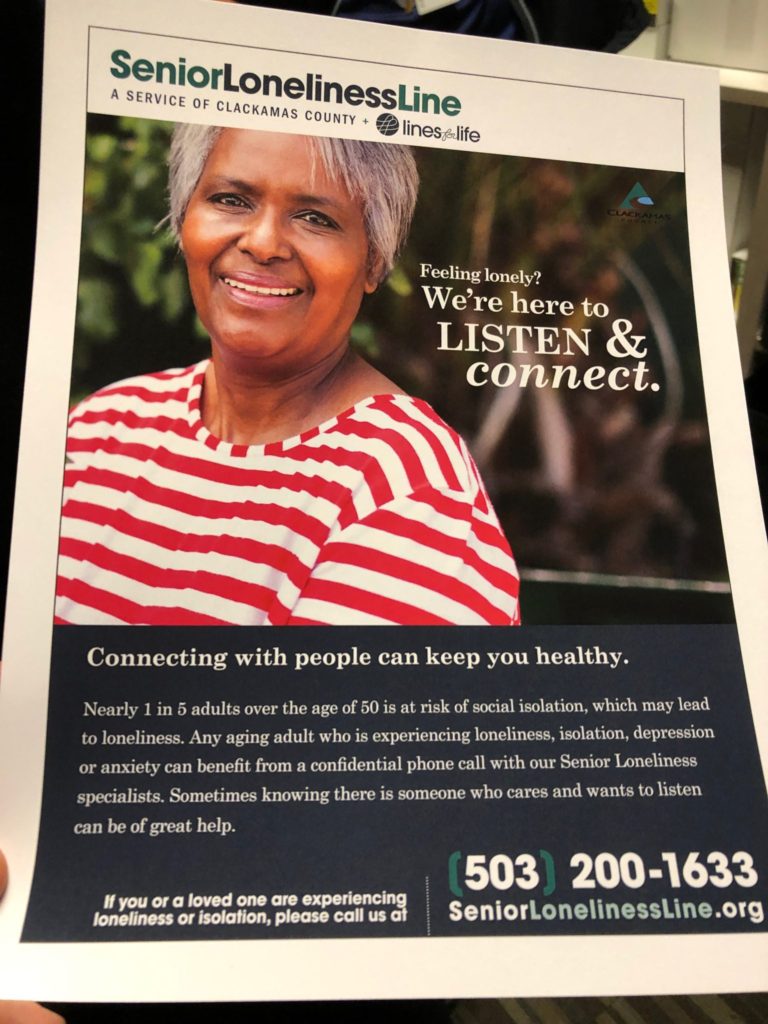
NW Noggin volunteers met with a group of the YouthLine teen volunteers to offer some continuing education on what happens in the brain in response to stress, depression, substance abuse, as well as discussing relevant aspects of adolescent brain development.
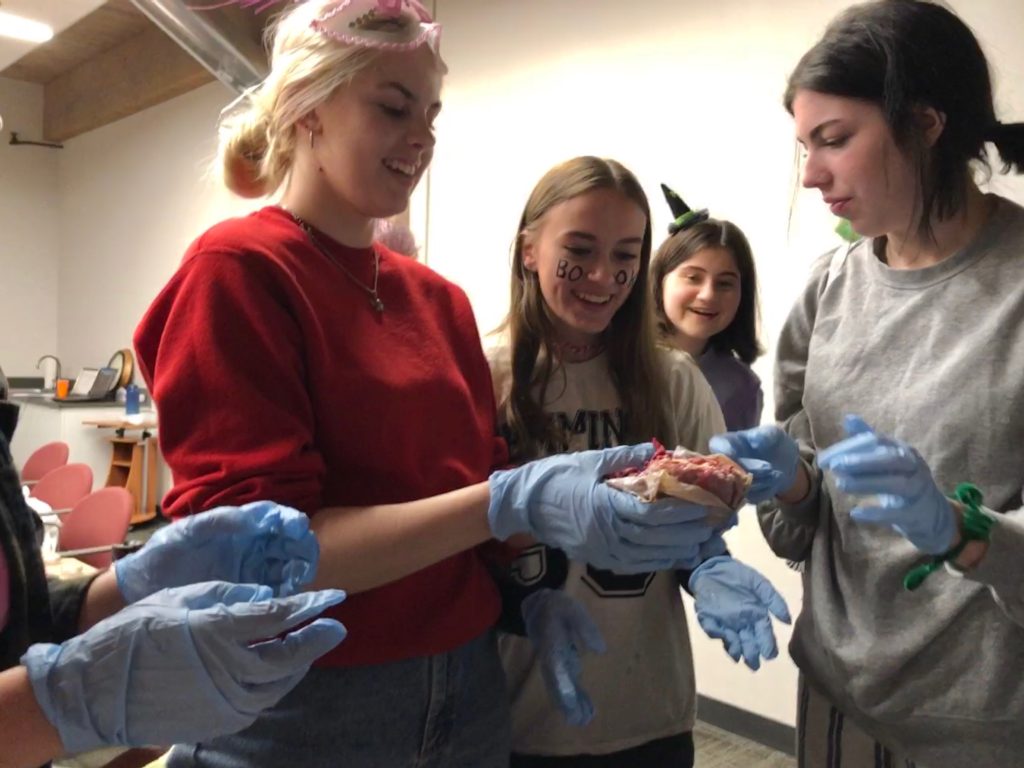
Our Noggin participants were Marissa Swadener, Louis Sumrall, and Danny Gray from Portland State University, Bill Griesar and Jeff Leake from NW Noggin and PSU, and Jade Osilla, the Assistant Director of Prevention Programs for Lines for Life…
The peer youth counselors had great questions…
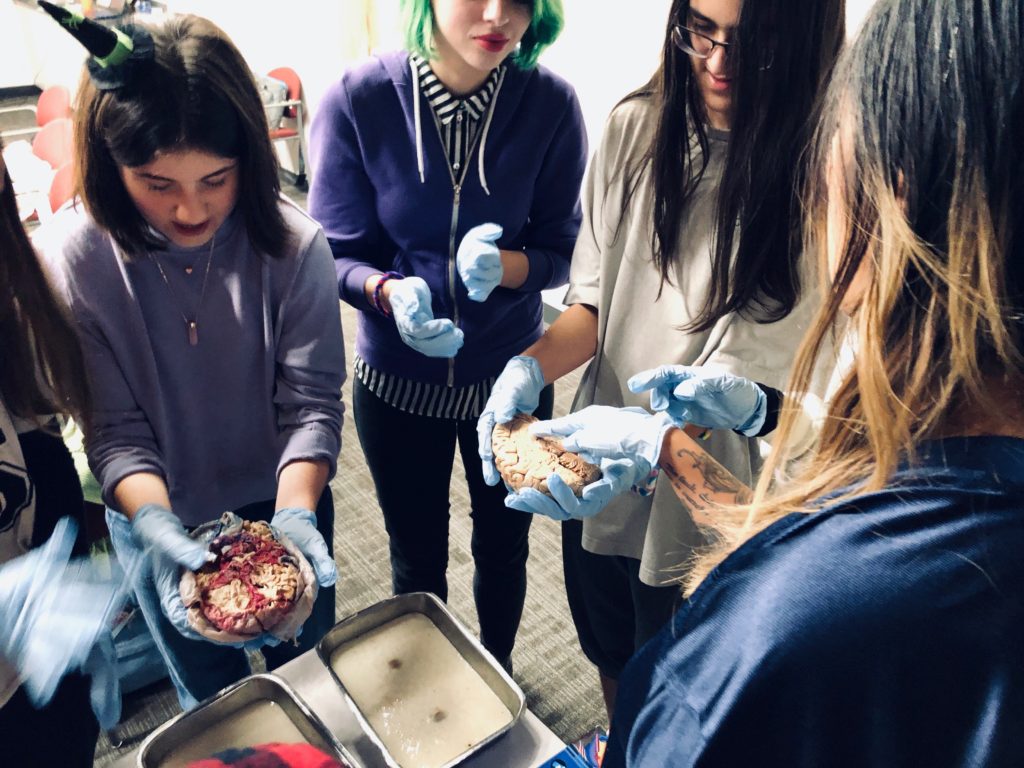
“What is the most important thing that we, as support providers, should know about the brain?” we were asked.
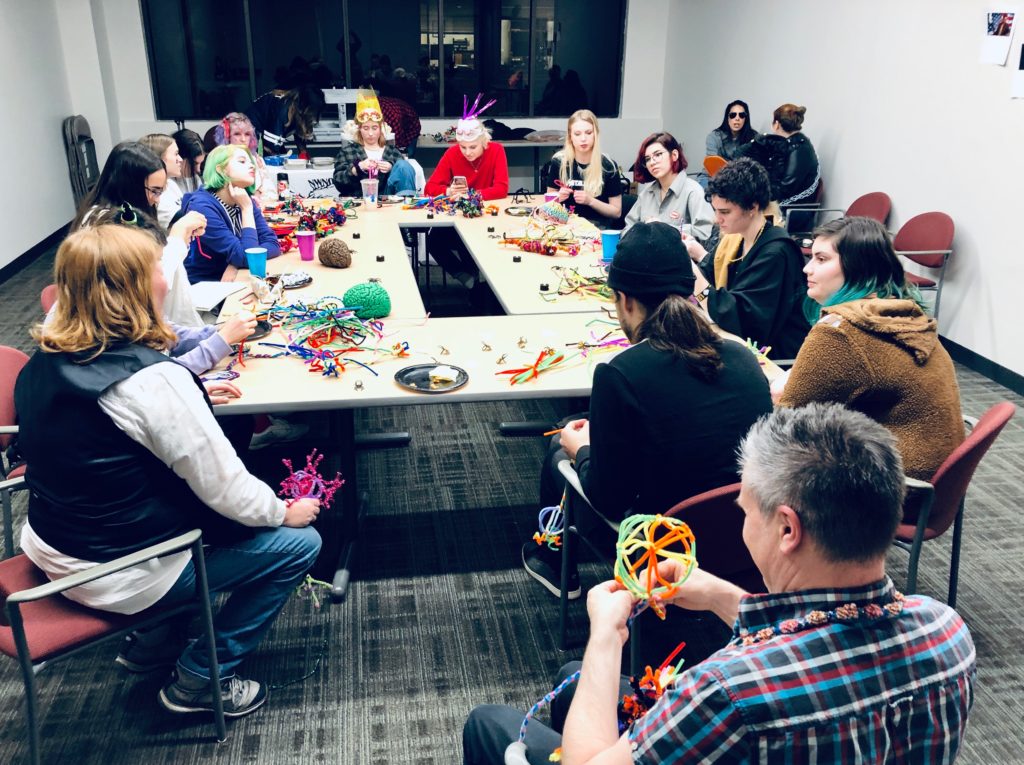
“That it changes,” we replied. “Especially during adolescence. You’re going from 200 billion brain cells as an infant to 86 billion as an adult. You’re wiring up networks of neurons that let you attend, decide, think. How you feel, how you perceive things, how you behave now is not necessarily permanent. There is tremendous potential for growth and change.”
LEARN MORE: Brain Plasticity in the developing brain
LEARN MORE: Maturation of the adolescent brain
LEARN MORE: Adolescent Risk Taking, Impulsivity, and Brain Development: Implications for Prevention
LEARN MORE: NIH releases first dataset from unprecedented study of adolescent brain development
LEARN MORE: The Teen Brain: 6 Things to Know
Counselors receive 65 hours of training for their role. They told us that most of the calls and texts they receive are about school, family and relationship problems, although they also deal with suicide and prevention of self harm.
Join the YouthLine Team!
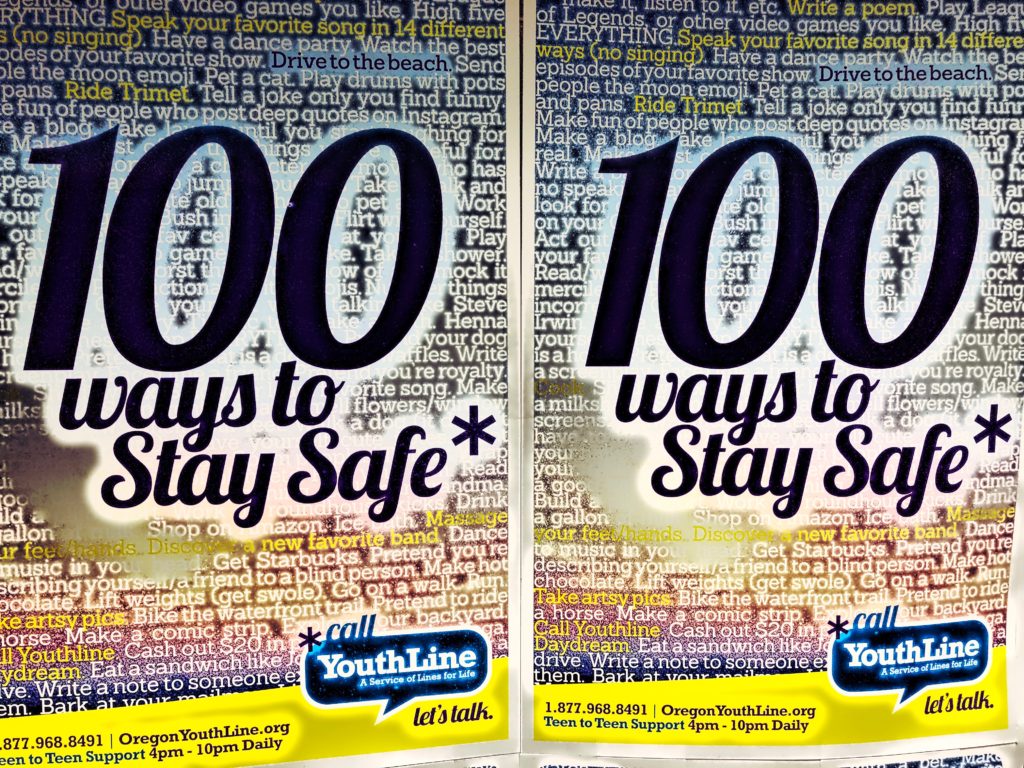
“What about social media?” we asked. “That’s not really a problem that callers report,” we were told. “Usually it lets them reach out and meet other people who can help, or are in the same situation. It lets them find their own community.” However, bullying on social media is sometimes an issue, noted staff.
The YouthLine program is especially popular for teens texting in to chat about concerns. “Adults can’t text,” a staff member explained. “Our peer volunteers are so much better at this! Adults are bad at emojis, and text more formally, with periods that add jarring emphasis, or ellipses after statements which – to teenagers – can make what they’re texting seem insincere.”
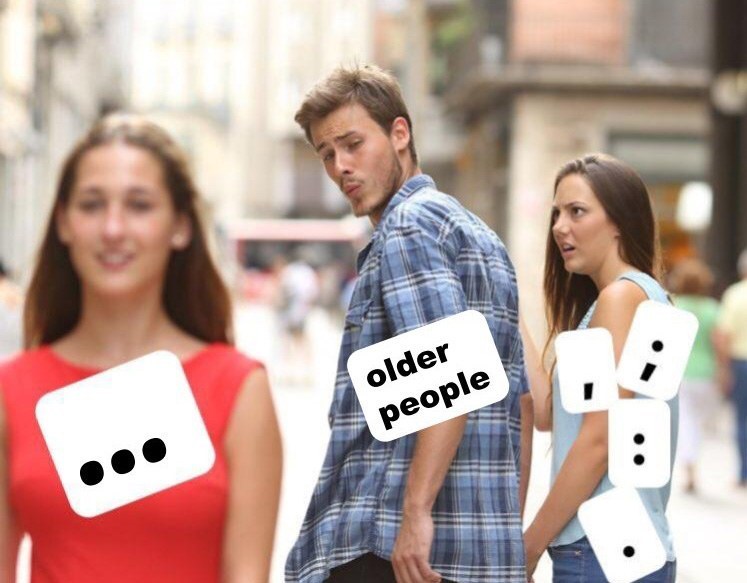
LEARN MORE: Codifying “Boomerspeak” and debating the ethics of poking fun at it
LEARN MORE: Texting insincerely: The role of the period in text messaging
LEARN MORE: There’s a reason using a period in a text message makes you sound angry
LEARN MORE: Adults more likely to text and drive than teens
LEARN MORE: Americans and Text Messaging
YouthLine also offers interactive lessons in classroom settings to teach youth valuable coping skills. They aim to normalize help seeking behaviors, as well as destigmatize mental health and substance use. They teach lessons in coping skills, stress management, and decision making.
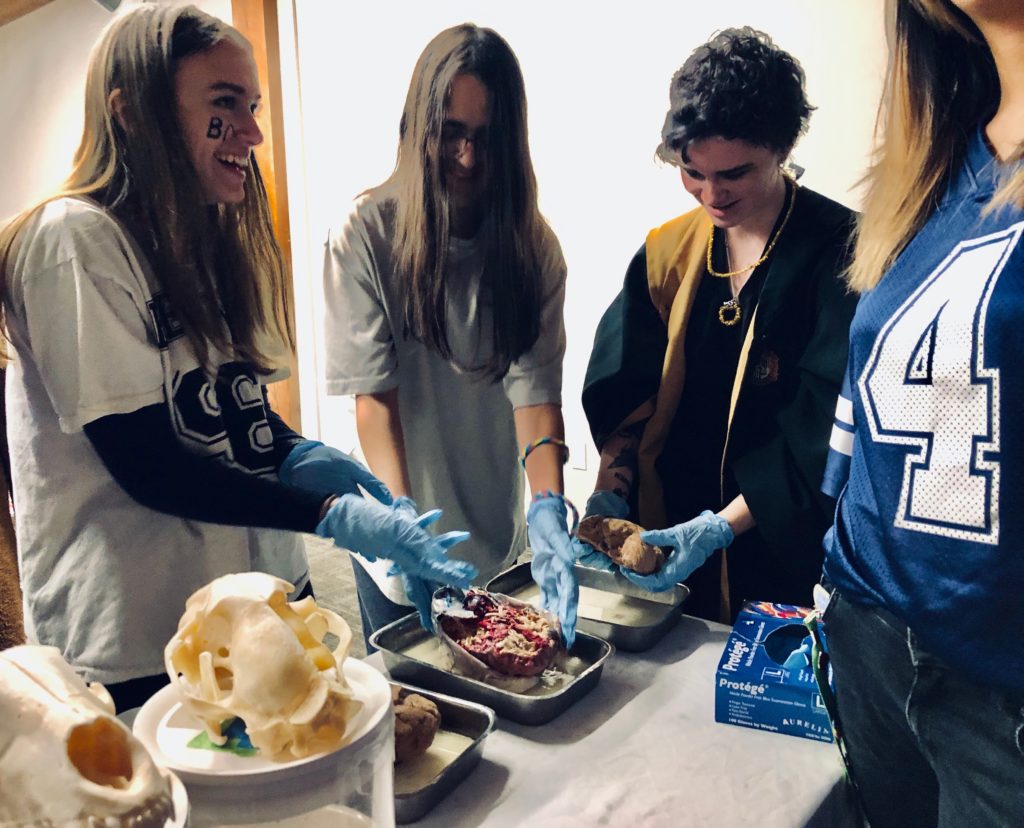
They believe that, based on both experience and research, “1) teens are resilient, 2) teens can gain coping skills to positively guide their lives, and 3) negative perceptions around mental health and seeking help can be turned around.”
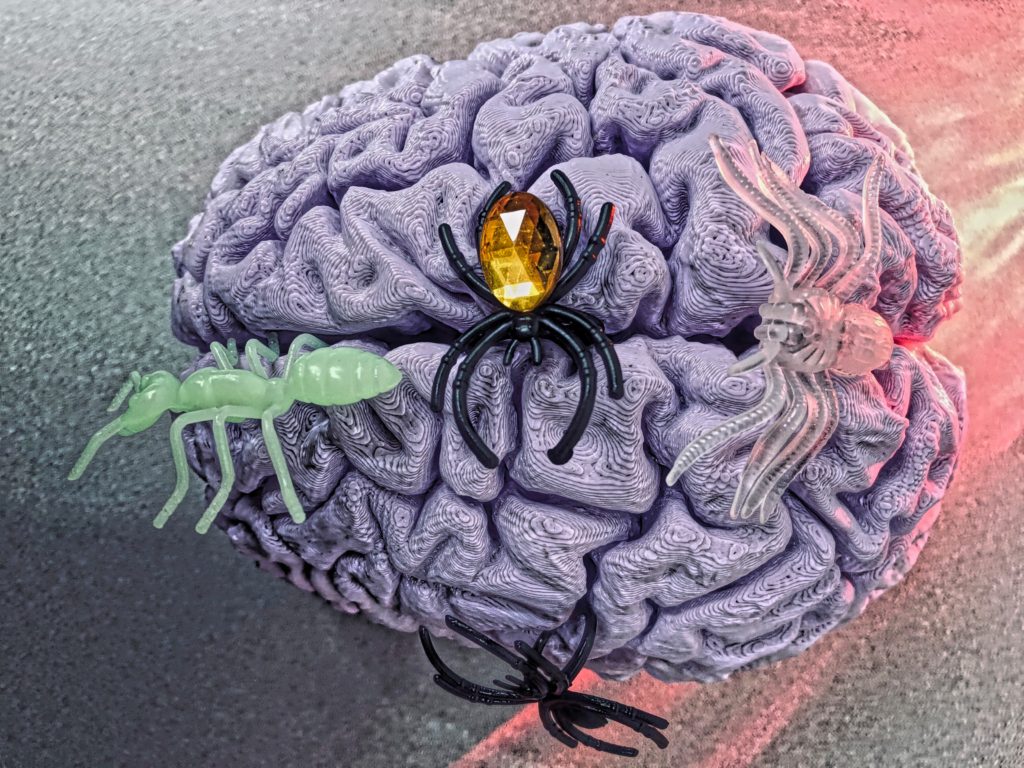
This was also a staff-organized pre-Halloween celebration for the youth counselors, and we enjoyed some cake and cookies. And of course our brains fit right in 🙂
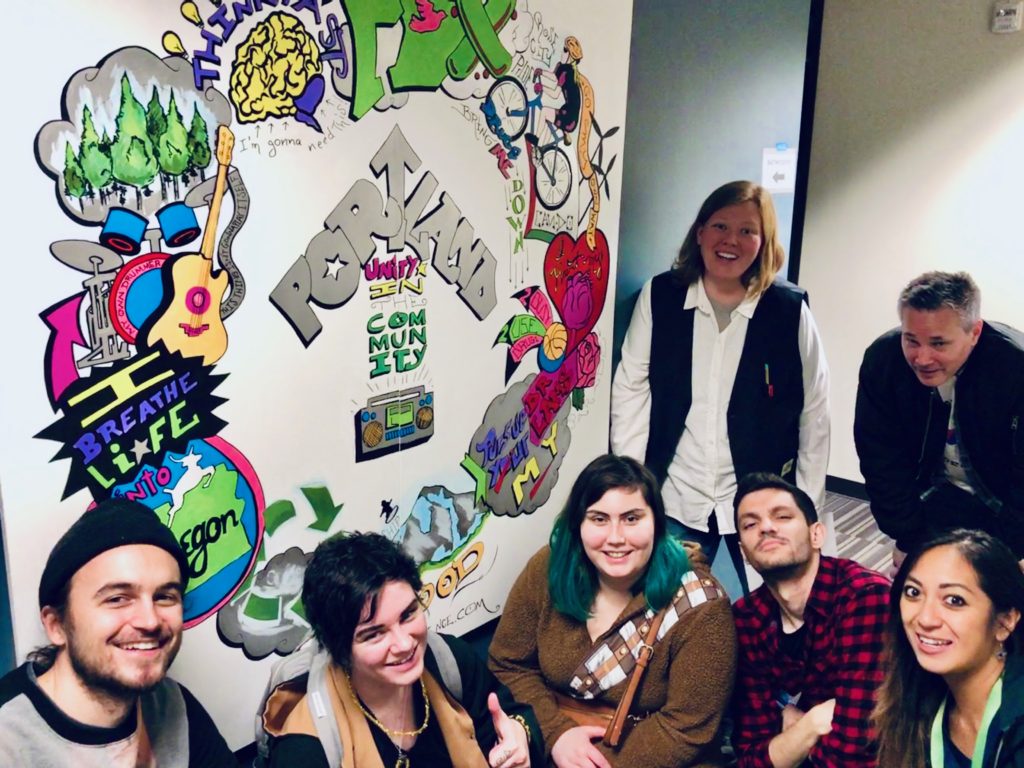
Jade then gave us a tour of Lines for Life. There is so much essential community work being done here, and it was a compelling, eye-opening experience for us all. Many thanks to Jade and the young volunteers and staff at YouthLine and Lines for Life for inviting us to join them.
